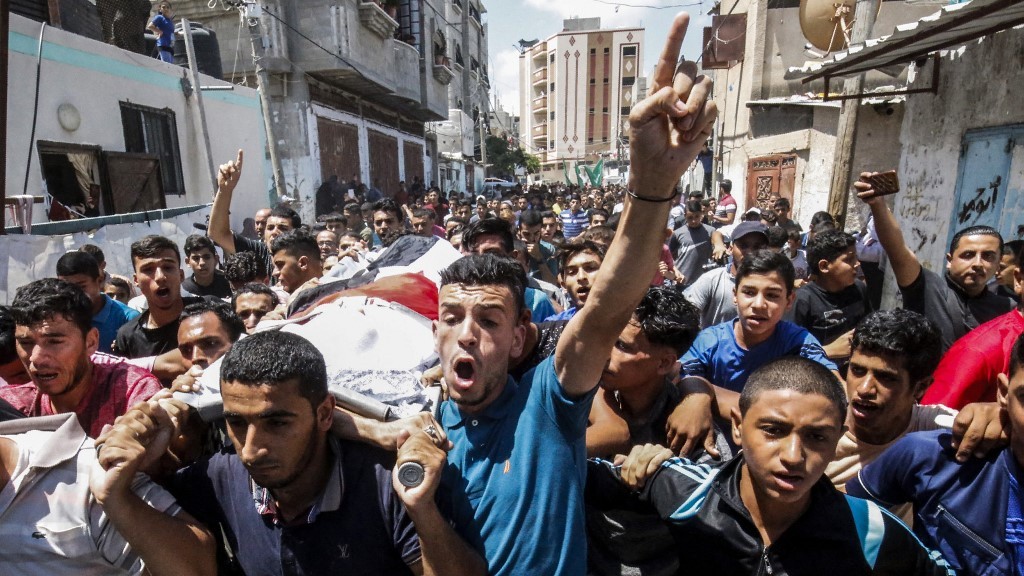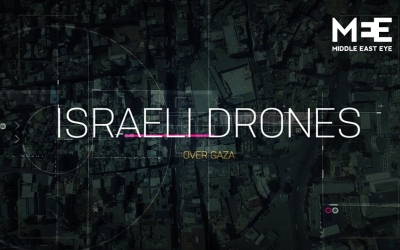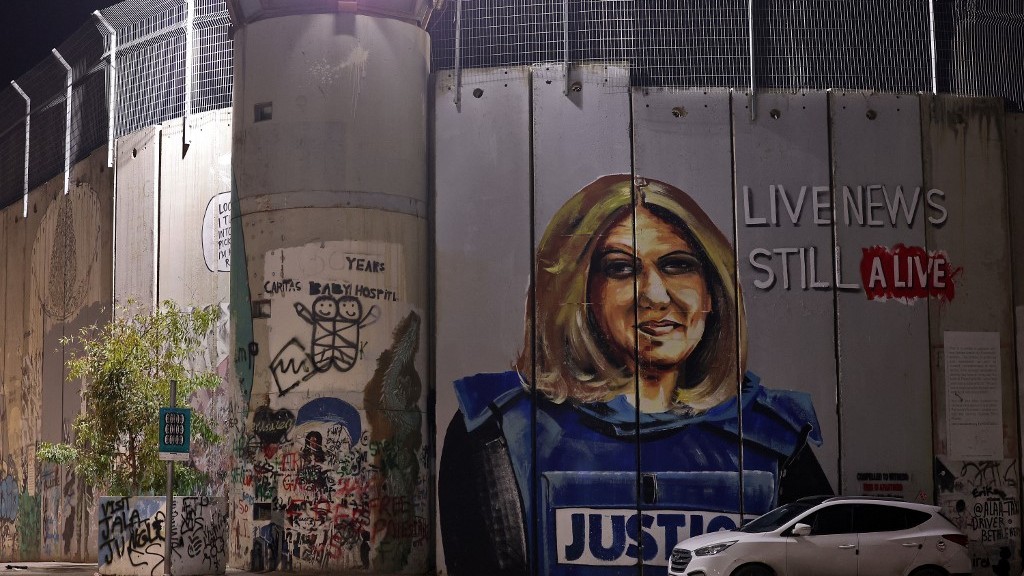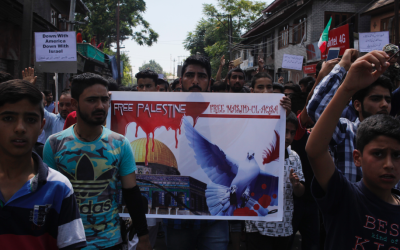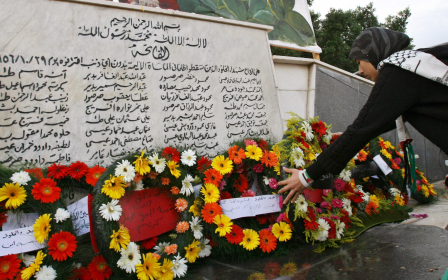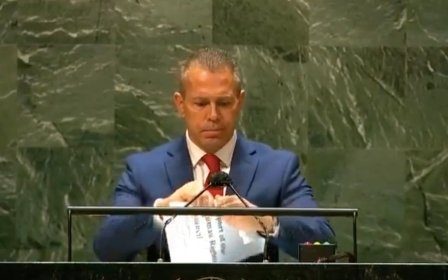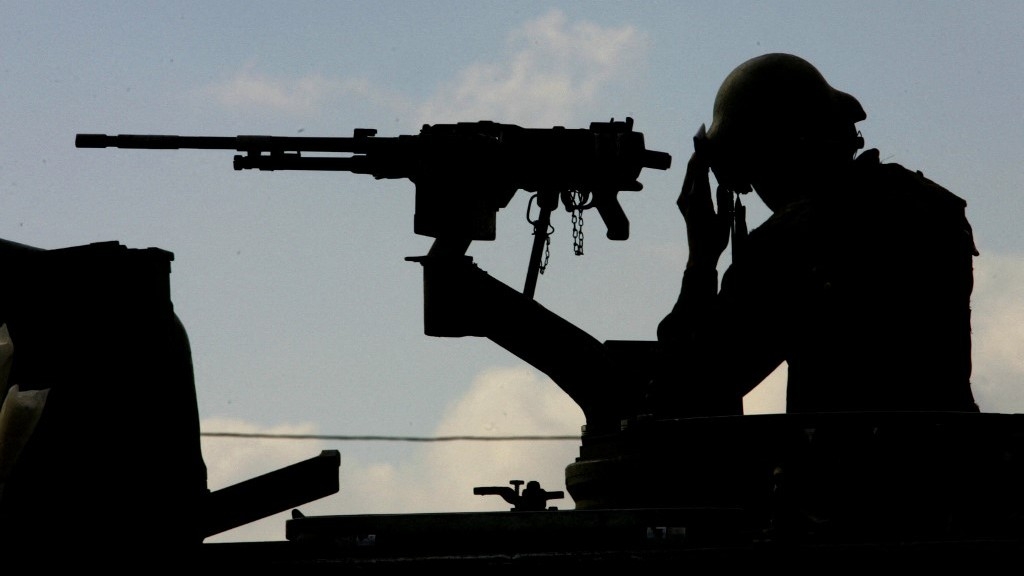
The deadly maths Israel uses to target Palestinians
Last October, reports emerged that during an Israeli military operation in Jenin refugee camp in the occupied West Bank, ground forces were supported by combat helicopters and armed drones, although the equipment was not used offensively.
While commentators have speculated as to whether this indicates that Israel could start using armed drones extensively in the occupied West Bank, as it does in the besieged Gaza Strip, an understanding of Israel’s mathematical formula for killing Palestinians suggests the chances of this are low.
The deadliest maths is in Gaza, where Israel does not care to count the corpses of the Palestinians who die in its attacks. This indifference is evident in the large numbers of civilians killed, including families slaughtered in whole or in part, and in the extensive destruction of residences, hospitals, health clinics, schools, mosques, and road and power infrastructure, causing great suffering to those who remain alive.
Western media outlets accept uncritically Israel's assertions that the dead are all 'terrorists' or civilians who died as 'collateral damage'
Apart from empty condemnations that do not translate into action, the international community does not seem to care about Palestinian deaths in Gaza. Many western countries politically and militarily support Israel’s fight against the armed Palestinian groups operating there, while western media outlets accept uncritically Israel’s assertions that the dead are all “terrorists” or civilians who died as “collateral damage”. Even Israel’s destruction in May 2021 of a Gaza tower housing international media outlets has been long forgotten.
None of the reports by UN commissions on Gaza have led to any real consequences or sanctions on Israel. A UN inquiry that investigated the 2018 protests in Gaza found that 183 people were killed by Israeli military live fire and more than 6,000 were wounded by live ammunition, including hundreds of women and children. More than 1,500 others suffered indirect injuries from bullet fragments or shrapnel. But as usual, the report did not have any consequences for Israel.
New MEE newsletter: Jerusalem Dispatch
Sign up to get the latest insights and analysis on Israel-Palestine, alongside Turkey Unpacked and other MEE newsletters
'Where every bullet landed'
In response to reports on the massive numbers of casualties during the 2018 demonstrations, the Israeli army asserted - in a tweet and a document that were both later removed from the internet - that the use of live fire was restricted to specially trained snipers.
“Nothing was carried out uncontrolled; everything was accurate and measured, and we know where every bullet landed,” the tweet noted.
Amid allegations that soldiers had fired explosive bullets, causing severe injuries to many victims after being fired from a short distance, the document stated that they used “industry standard 7.62mm ammunition, in use by many state militaries including NATO members”.
But if so many civilians were directly hit, and the Israeli military was firing accurately and knew exactly where each bullet landed, then must we not conclude that the snipers shot these civilians on purpose, thus violating international law, which requires a distinction between combatants and civilians?
From Israel’s apparent indifference over the victims of its attacks in Gaza, to the deadly technology it employs, extensive “collateral damage” to civilians is a recurring issue. Some might remember the incident in July 2002, when an Israeli Air Force plane dropped a one-ton bomb on Gaza City, killing Hamas military leader Salah Shehadeh and 14 civilians, mostly women and children. The use of such a bomb indicated how little Israel cared about the death toll.
Drones and artillery
During the 2008-09 war in Gaza, the Israeli army made massive use of unmanned aerial vehicles (UAVs), which, while also deadly to civilians, are considered relatively accurate - and Israel’s exports of UAVs to other countries soared. During the 2014 Gaza war, journalists who managed to enter the besieged territory told me they were surprised to see many incidents of soldiers using artillery shells, a more primitive and inaccurate technology whose use in dense, built-up areas increases the number of victims.
After the war ended, the Israeli army published data showing that its soldiers fired no less than 40,000 155mm artillery shells during the 2014 war - four times the number of shells used during the 2008-09 war. No rationale was provided for this change. I believe this proves that Israel simply does not care about the number of civilian victims in Gaza.
But in the occupied West Bank, Israel does not even count the corpses of Palestinians - not out of respect for international law or moral reasons, but for fear of another popular uprising.
The routine in the occupied West Bank is that every few weeks, or sometimes every few days, one or more Palestinians are killed by the Israeli army or Border Police. Israel is afraid of another intifada, since unlike in the Gaza Strip, where settlers have not been present since 2005, settlements are spread throughout the occupied West Bank, and Israeli forces are obliged by the government to protect their security.
In addition, Israel does not want a new intifada to break out, as this could lead to mounting international pressure for it to pacify the area through political gestures to the Palestinians. This, in turn, would foment internal political discord amongst Israelis.
For these reasons, in the occupied West Bank, Israel tries to avoid large massacres or to prevent a cumulative death toll in a short time period that would be big enough to push Palestinians onto the streets, which could cause Israel to lose control.
The 'American roulette' exception
Polish Israeli inventor Simcha Blass and his son are credited with creating modern drip irrigation technology in the mid-20th century. It could be said that Palestinians in the occupied West Bank are doomed to die in drips. Israel’s method of avoiding major massacres in this territory is implemented through stricter rules of engagement, and the use of less lethal weapons than in Gaza. Killings in the occupied West Bank are usually carried out by foot soldiers, rather than combat planes, artillery, or bombs.
Amongst international media outlets and western countries, there appears to be little concern when Israel kills Palestinians “drop by drop”. The exception is the “American roulette”: If to Israel’s chagrin, one of the dead Palestinians also turns out to be an American citizen - as in the case of journalist Shireen Abu Akleh - the public outcry is much louder.
It would appear that one corpse of an American citizen is equal to thousands of corpses of “regular” Palestinians, as far as the treatment of Israel is concerned. In such cases, the US State Department is forced to treat the dead Palestinian as a human being, and not just an unimportant statistic - and sometimes even to publicly pressure Israel to investigate and prosecute those responsible.
Because of this maths, Israel will probably not start using armed UAVs in the occupied West Bank, as such a strategy could lead to more deaths and injuries, potentially sparking another intifada. This will remain true as long as the Israeli government has no interest in another intifada.
But it is possible that the new government, which relies on devout supporters of apartheid and the far-right extremist religious Zionist ideology of Kahanism, will have an interest in setting the area on fire.
Under the coalition agreement, Israel’s border police, who handle daily operations in the occupied West Bank, will be transferred to the direct control of National Security Minister Itamar Ben-Gvir, the leader of the fascist Jewish Power party. He has already stated his intention to facilitate the quicker use of live fire by police against “terrorists” - a term whose definition he is expanding.
Parallels in Kashmir
Muslims in Kashmir are familiar with this type of mathematical formula. Indian security forces have killed and disappeared tens of thousands of Muslims in Kashmir, but the state appears to be secure in the knowledge that, as with Gaza, the international community is not very interested in their plight - even showing sympathy for the Indian government’s fight against “terrorist” and separatist elements.
On the other hand, the Indian government has to care about any massacre of Muslims in other parts of India, because it could lead to significant international attention. The 2002 massacre of Muslims in Gujarat, for example, plagued Narendra Modi for years, as he was temporarily barred from entering the US, Britain, and EU states.
The massacre of Muslims in Delhi in 2020 also occupied the international media for a relatively long period of time. Hindu nationalist extremists seem to understand that it is better for them to eliminate their opponents using the “drip method”, one by one, rather than carrying out large-scale massacres that would arouse international attention.
Perhaps we have reached a horrible situation in which too few people in the world are counting the deaths and injuries suffered by Palestinians and Indian Muslims, while bullets, missiles, and artillery continue to rain down.
If we collected all the bodies of the dead, from Palestine to India, and put them in the entrances of the White House or the European Parliament, those inside would have to take notice. But since their chief concern is for themselves, such an act may only prompt them to call the Israeli or Indian leaders to say: “You have to stop all the killing; we want to get out of our buildings.”
The views expressed in this article belong to the author and do not necessarily reflect the editorial policy of Middle East Eye.
Middle East Eye delivers independent and unrivalled coverage and analysis of the Middle East, North Africa and beyond. To learn more about republishing this content and the associated fees, please fill out this form. More about MEE can be found here.


